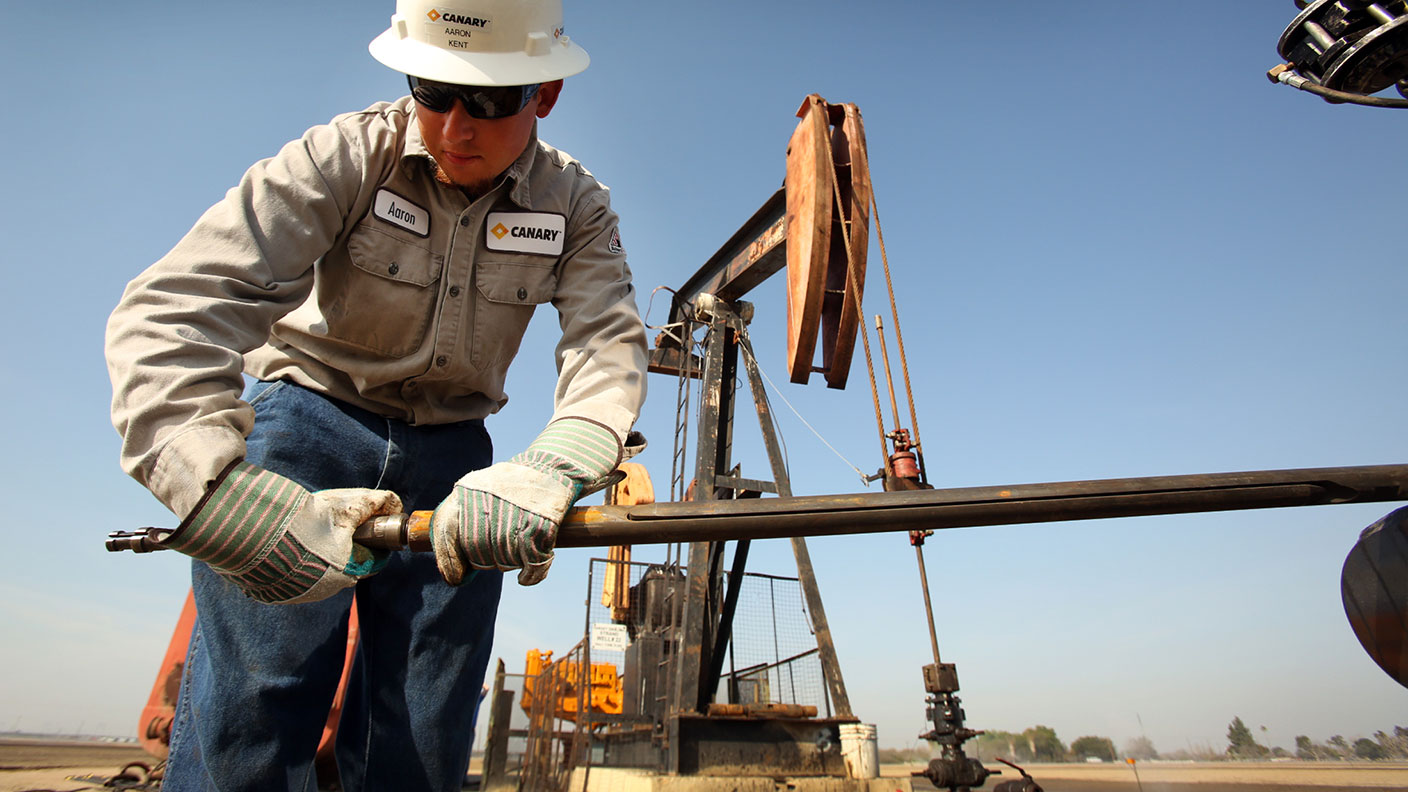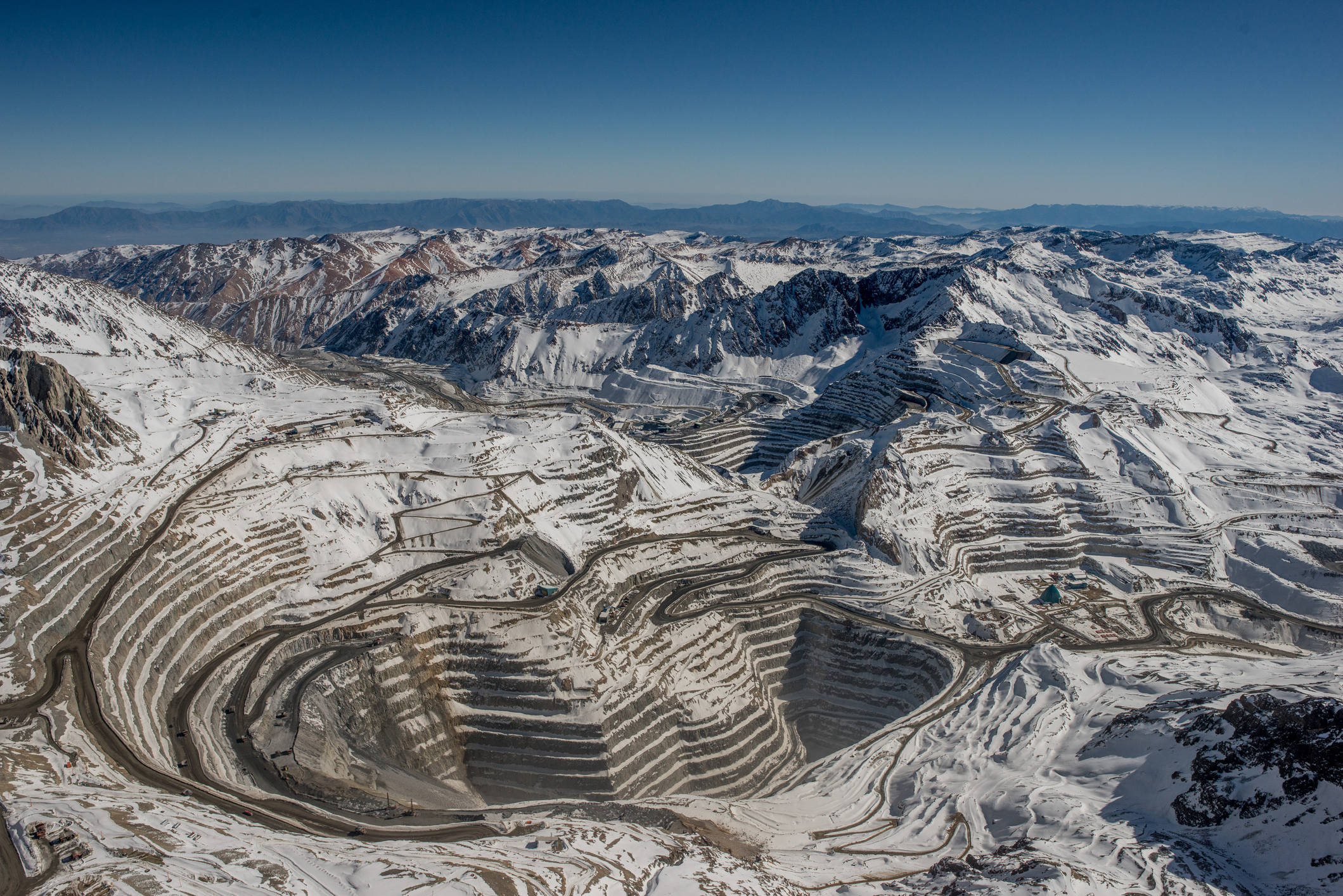Here’s why Saudi Arabia is no longer worried about shale oil
In recent years, rising oil prices have been met by rising production from US shale companies. Saudi Arabia is gambling that's no longer the case. John Stepek explains why, and what that means for investors.


Get the latest financial news, insights and expert analysis from our award-winning MoneyWeek team, to help you understand what really matters when it comes to your finances.
You are now subscribed
Your newsletter sign-up was successful
Want to add more newsletters?

Twice daily
MoneyWeek
Get the latest financial news, insights and expert analysis from our award-winning MoneyWeek team, to help you understand what really matters when it comes to your finances.

Four times a week
Look After My Bills
Sign up to our free money-saving newsletter, filled with the latest news and expert advice to help you find the best tips and deals for managing your bills. Start saving today!
The price of a barrel of Brent crude oil spiked above $70 this morning, hitting its highest level in more than a year.
The move came in the wake of an attack on the world’s largest oil facility, Saudi Arabia’s Ras Tanura terminal. The terminal is capable of exporting around 6.5 million barrels of oil a day – that’s about 7% of global oil demand.
The drone attacks apparently didn’t do any significant damage, but oil prices are likely to remain high. And that’s because the high price of oil right now has very little to do with any threat to Saudi infrastructure.
MoneyWeek
Subscribe to MoneyWeek today and get your first six magazine issues absolutely FREE

Sign up to Money Morning
Don't miss the latest investment and personal finances news, market analysis, plus money-saving tips with our free twice-daily newsletter
Don't miss the latest investment and personal finances news, market analysis, plus money-saving tips with our free twice-daily newsletter
Opec+ no longer fears competition from US shale oil
By the end of last week, before any attacks on Saudi terminals, the oil price was already heading much higher. Investors had been waiting for the latest meeting between the big Middle Eastern producers and Russia; they’d assumed that the so-called “Opec+” cartel would be unable to resist unleashing a bit more supply into the market at current prices. However, Opec’n’pals surprised everyone by sticking to their guns – Saudi Arabia would rather keep prices high at the moment. And it’s worth digging into why that is.
The biggest risk to big oil producers like Saudi Arabia is that high oil prices result in their own destruction. A high oil price encourages two things: the hunt for substitute sources of oil, such as shale; and the hunt for substitutes to oil itself, such as renewable energy.
Saudi Arabia knows or believes that the fossil fuel era is nearing its endgame. The hunt for sustainable and better renewable sources of energy is now entrenched. It can’t be derailed by hugely lower oil prices. So in the longer term, the best bet for a big oil producer just now is to diversify its economy (which the Saudis are attempting, though with mixed success) while trying to flog off its remaining oil for as much as possible.
However, competition from shale producers is a bigger issue for this strategy. Because in the recent past, when oil prices have gone high enough, shale has acted as a cap. That’s because shale companies have been desperate for cashflow. So even at unprofitable prices, they’ll keep pumping oil just to sell something for hard cash. And when prices go higher, they’ll pump as hard as they can to milk the profitable bit.
Saudi Arabia is now betting that this has changed. And it might well be a good bet, because shale producers – as eventually happens to all commodity producers in a bear market – are finally in that phase of the cycle where it’s not purely about what you can produce. It’s about what you can produce profitably, and about respect for shareholder capital.
The big players are consolidating the shale field now. And if you think that they want to pump barrels of oil at a loss, then you’ve got another think coming. They don’t have to do that. And once the land grab ends and the conservation of capital game begins, suddenly everyone is Opec.
The shale guys would be quite happy to see oil sustainably higher than it is now, especially given that competition within that area is now calming down. Everyone can make a profit as long as no one gets too greedy. That’s not going to upset them.
On top of that, Saudi Arabia has US president Joe Biden backing its hunches on this one. The president’s focus on “green” policies could make it tougher to develop shale fields and so it’ll be tougher to expand supply and so prices will go up. It’s another illustration of how regulation very often is exactly what any big incumbent player in a market wants. It keeps the competition at bay.
What this means for investors
So while this morning’s attack adds a spin to the story, the dynamics of the oil market had already shifted. It’s turning into a seller’s market. And this is happening at a time when the global economy is gradually getting back onto its feet.
From an investor’s point of view, this is just another facet of the re-opening trade and the “great rotation”. And it’s worth remembering that these things don’t move in straight lines. Oil has had quite a run now; it wouldn’t be a surprise to see it digest its gains for a bit.
But once these trends change, they can continue for quite some time. So if you’re a long-term investor, this is not a moment to worry about timing. Just be aware that this shift is happening and make sure that your portfolio has sufficient exposure to it.
At its simplest level, it’s a “sell the Nasdaq, buy the FTSE 100” trade. To be clear, that doesn’t mean you put 100% of your money in either. What it does mean is that if your focus has been on fast-growing popular stocks at the expense of boring old value stocks, then now is the time to take some of those profits and shift the emphasis back to the dull stuff.
We’ll be discussing this a lot more in forthcoming issues of MoneyWeek magazine. Get your first six issues, plus a beginner’s guide to bitcoin, absolutely free here.
Get the latest financial news, insights and expert analysis from our award-winning MoneyWeek team, to help you understand what really matters when it comes to your finances.

-
 Should you buy an active ETF?
Should you buy an active ETF?ETFs are often mischaracterised as passive products, but they can be a convenient way to add active management to your portfolio
-
 Power up your pension before 5 April – easy ways to save before the tax year end
Power up your pension before 5 April – easy ways to save before the tax year endWith the end of the tax year looming, pension savers currently have a window to review and maximise what’s going into their retirement funds – we look at how
-
 Is the market missing the opportunity in energy?
Is the market missing the opportunity in energy? -
 Halifax: House price slump continues as prices slide for the sixth consecutive month
Halifax: House price slump continues as prices slide for the sixth consecutive monthUK house prices fell again in September as buyers returned, but the slowdown was not as fast as anticipated, latest Halifax data shows. Where are house prices falling the most?
-
 Rents hit a record high - but is the opportunity for buy-to-let investors still strong?
Rents hit a record high - but is the opportunity for buy-to-let investors still strong?UK rent prices have hit a record high with the average hitting over £1,200 a month says Rightmove. Are there still opportunities in buy-to-let?
-
 Pension savers turn to gold investments
Pension savers turn to gold investmentsInvestors are racing to buy gold to protect their pensions from a stock market correction and high inflation, experts say
-
 6 stocks to buy to invest in Latin America
6 stocks to buy to invest in Latin AmericaThe region is the world’s one-stop shop, boasting the raw materials required for the energy transition and key foodstuffs to cater for growing populations, says James McKeigue. Here’s how to profit.
-
 Where to find the best returns from student accommodation
Where to find the best returns from student accommodationStudent accommodation can be a lucrative investment if you know where to look.
-
 The world’s best bargain stocks
The world’s best bargain stocksSearching for bargain stocks with Alec Cutler of the Orbis Global Balanced Fund, who tells Andrew Van Sickle which sectors are being overlooked.
-
 Revealed: the cheapest cities to own a home in Britain
Revealed: the cheapest cities to own a home in BritainNew research reveals the cheapest cities to own a home, taking account of mortgage payments, utility bills and council tax